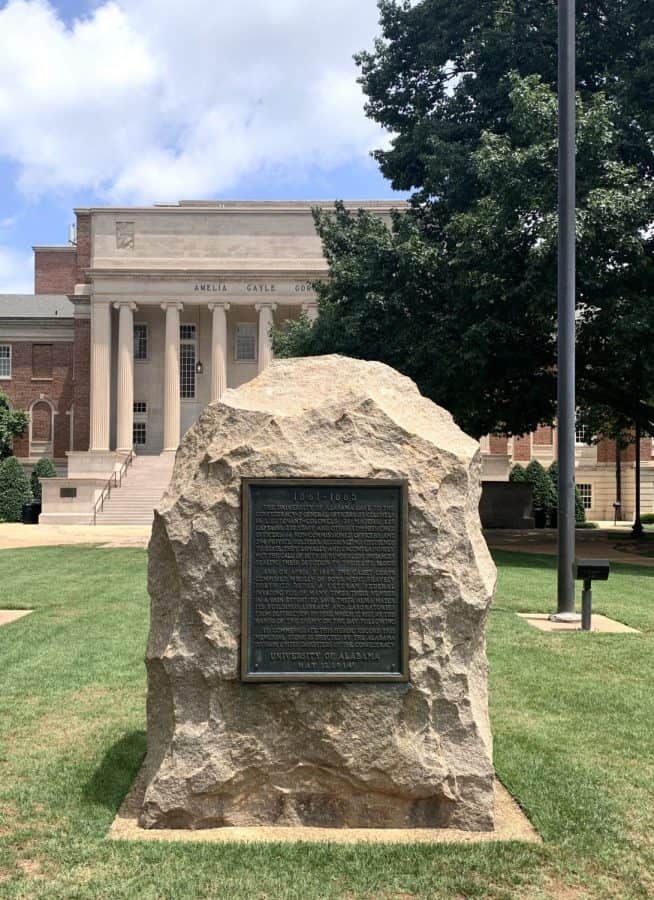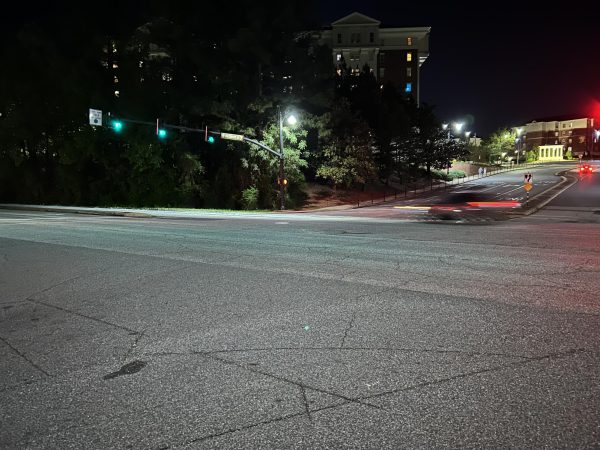UA Board of Trustees authorizes removal of three Confederate plaques
June 8, 2020
The University Board of Trustees announced on Monday that three plaques commemorating University of Alabama students who served in the Confederate army and members of the student cadet corps involved in defending the campus will be removed from their locations.
The plaques are located on and in front of Gorgas Library. One is located on a boulder donated by the United Daughters of the Confederacy. The two others are located on the upper front porch of Gorgas Library. They will be moved to a “more appropriate historical setting” on the recommendation of UA President Stuart Bell.
The University also announced that a select group of trustees will review and study the names of buildings on all UA System campuses and report to the board on any recommended changes.
The final decisions regarding those recommendations will be made by the full Board of Trustees at a public meeting. The date of that meeting will be announced at a later date.
The removal comes after years of public conversations, as well as two recent petitions that have called for the removal of plaques and monuments dedicated to Confederate soldiers and the renaming of buildings that are named after Ku Klux Klan members, eugenicists and slave owners. The petitions currently have over 20,000 signatures.
The University’s Student Government Association issued a statement on Saturday calling on University officials to “begin the work of changing the names of campus buildings with racist namesakes” – a call that has been supported by independents for years.
“The University of Alabama Student Government Association joins our fellow students in their call to rename these buildings and urge a review of the Alabama Memorial Preservation Act, a state law banning local governments from renaming historical buildings,” the statement read.











